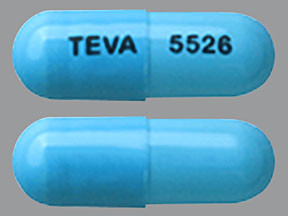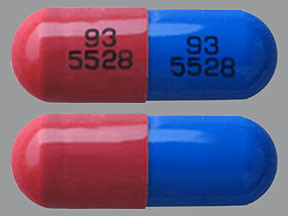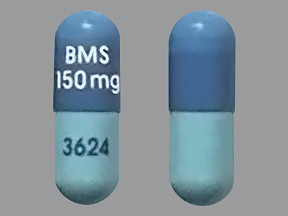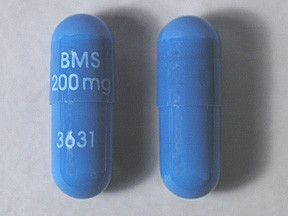ATAZANAVIR - ORAL
PHONETIC PRONUNCIATION: (A-ta-ZAN-a-vir)
COMMON BRAND NAME(S): Reyataz
GENERIC NAME(S): atazanavir sulfate
Uses
USES: This drug is used with other HIV medications to help control HIV infection. It helps to decrease the amount of HIV in your body so your immune system can work better. This lowers your chance of getting HIV complications (such as new infections, cancer) and improves your quality of life. Atazanavir belongs to a class of drugs known as protease inhibitors. It may be given with certain other medications (such as cobicistat, ritonavir) to increase ("boost") the levels of atazanavir. This helps atazanavir work better. Atazanavir is not a cure for HIV infection. To decrease your risk of spreading HIV disease to others, do all of the following: (1) continue to take all HIV medications exactly as prescribed by your doctor, (2) always use an effective barrier method (latex or polyurethane condoms/dental dams) during all sexual activity, and (3) do not share personal items (such as needles/syringes, toothbrushes, and razors) that may have contacted blood or other body fluids. Consult your doctor or pharmacist for more details.
How to use ATAZANAVIR - ORAL
HOW TO USE: Read the Patient Information Leaflet if available from your pharmacist before you start taking atazanavir and each time you get a refill. If you have any questions, ask your doctor or pharmacist. Take this medication by mouth as directed by your doctor, usually once daily with food. Do not open, crush, or chew the capsules. Swallow the capsules whole. If you are taking atazanavir with certain other medications (such as cobicistat, ritonavir), take them at the same time. Since this medication may cause kidney problems, drink plenty of fluids during treatment to lower your risk. The dosage is based on your medical condition, response to treatment, and other medications you may be taking. For children, the dosage is also based on weight. Be sure to tell your doctor and pharmacist about all the products you use (including prescription drugs, nonprescription drugs, and herbal products). If you are directed to take ritonavir with this medication, take them both at the same time. If you are taking antacids or buffered forms of drugs (such as didanosine solution, didanosine enteric-coated capsules), take atazanavir at least 2 hours before or 1 hour after these medications. For the best effect, take this medication at evenly spaced times. To help you remember, take this medication at the same time every day. It is very important to continue taking this medication (and other HIV medications) exactly as prescribed by your doctor. Do not skip any doses. Do not take more or less of this drug than prescribed or stop taking it (or other HIV medicines) even for a short time unless directed to do so by your doctor. Doing so may cause the amount of virus to increase, make the infection more difficult to treat (resistant), or worsen side effects.
Side Effects
Precautions
Interactions
Overdose
Images

- color
- powder blue
- shape
- oblong
- imprint
- BMS 150mg, 3624

- color
- aqua blue
- shape
- oblong
- imprint
- TEVA, 5526

- color
- light turquoise
- shape
- oblong
- imprint
- 93 5527, 93 5527

- color
- red
- shape
- oblong
- imprint
- 93 5528, 93 5528

- color
- powder blue
- shape
- oblong
- imprint
- BMS 150 mg, 3624
Reviews
Faq for ATAZANAVIR - ORAL
Atazanavir is an antiviral medication used along with other drugs to treat HIV infection. It helps reduce the amount of the virus in the body and improves the immune system.
Atazanavir is taken orally as directed by your healthcare provider. It is usually taken once daily with food. It is important to take the medication consistently and not skip doses.
Common side effects of Atazanavir may include nausea, vomiting, stomach pain, diarrhea, headache, rash, and changes in body fat distribution. Contact your doctor if any side effects persist or worsen.
Yes, Atazanavir may interact with other medications. It is important to inform your healthcare provider about all the medications you are taking, including over-the-counter drugs and herbal supplements, to prevent any potential drug interactions.
If you miss a dose, take it as soon as you remember. However, if it is close to the time for your next dose, skip the missed dose and continue with your regular dosing schedule. Do not double the dose to catch up.
Yes, there are certain precautions and warnings associated with Atazanavir use. It may cause liver problems, so regular liver function tests are recommended. Atazanavir can also interact with certain foods, so it is important to follow any dietary instructions given by your doctor.
No, Atazanavir is not a cure for HIV. It is an antiretroviral medication that helps to control the virus and slow down the progression of the disease. It should be used as part of a comprehensive treatment plan for HIV.
The duration of Atazanavir treatment will be determined by your healthcare provider based on various factors such as your overall health, response to the medication, and the stage of HIV infection. It is usually taken for a long-term period.
It is generally recommended to avoid excessive alcohol consumption while taking Atazanavir. Alcohol can potentially increase the risk of liver problems associated with the medication. Talk to your doctor about the use of alcohol while on Atazanavir.
Disclaimer
IMPORTANT: HOW TO USE THIS INFORMATION: This is a summary and does NOT have all possible information about this product. This information does not assure that this product is safe, effective, or appropriate for you. This information is not individual medical advice and does not substitute for the advice of your health care professional. Always ask your health care professional for complete information about this product and your specific health needs.


No Reviews Yet